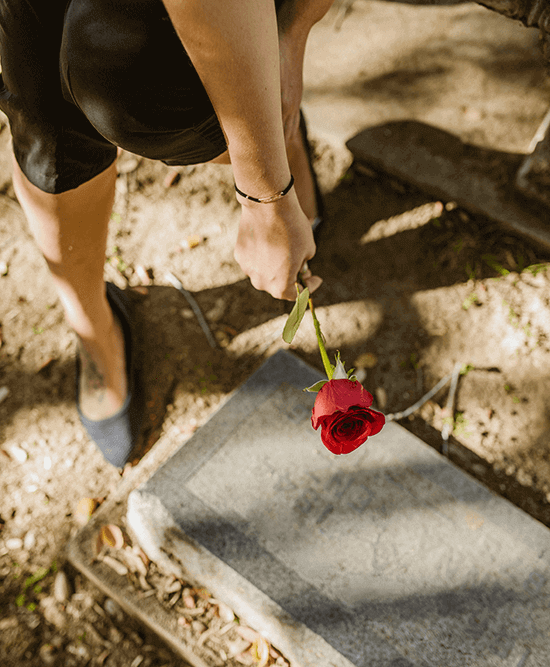The widow is grieving
It was mid-day. I posted a video of an immigrant being grilled on a quiz show who barely knew anything about England except how to adopt its British accent. To his astonishment, he got all the answers correct. It was so hilarious that we exchanged LOL emojis. Suddenly, another friend sent a message, “D. just passed away an hour ago.”The mood dropped.
How could we find the words to express our shock and offer sympathy? What thoughts ran through our friend’s mind? She watched him slip away. Did she hear him draw his last breath? Could she take every blow without losing her grip?
Grief is the first stage of widowhood. Someone wrote that if your spouse took full charge of house repairs, car maintenance, life insurance, and anything else requiring a male imprint, would it frighten her that, now, she had no idea where to begin or whom to count on? Those daily and monotonous deeds had made her appreciate him all the more.
A widowed friend gave a fair warning: “Do not get angry at your husband. Be patient with him. You will miss him, when he’s gone.”

The different stages of widowhood
The first year is the most trying period. Researchers found a substantial drop in women’s mental health. It showed an increased rate of depression and poor social functioning. It is called “widow’s brain,” wherein she may experience forgetfulness, extreme sadness, irritability, fatigue, exhaustion, numbness and even nausea.
Help her to take things a little slower and don’t push her to do any work. If she feels tired and weary, let her stay in bed longer than usual.
Bring her food, potted plants, flowers, and loose, lightweight clothes to cheer her up and keep her mind from wandering off.
Pray with her. If she’s amenable, ask her spiritual mentor to visit, to console and raise her spirit. Remind her of God’s unceasing presence in her life, especially of Jesus who carried a soft spot in his heart for widows.

Play musi—soothing and calm—to relieve the tightness in her chest. Three songs come to mind: Henry Mancini’s Two for the Road, Michel Legrand’s What Are You Doing the Rest of Your Life? and Ernani Cuenco’s Gaano Kita Kamahal.
Let her cry, and cry with her. Sharing her grief with people who care can start her healing.
Some widows turn to drugs and alcohol to blur their senses. May she come to realize that going down that road could only lead to more pain and desolation.
In the first year, she would have dealt with clearing up the house of her husband’s personal wardrobe, his favorite clutter and handing down some of his prized collections to family and friends. Look into archiving and transferring written works and photos to digitized versions.
With extreme difficulty, she will have to sift through other sensitive matters like whether he owed money or vice versa. Find ways to help her settle this amicably.
She’s alone, that’s true, but now she’s in the driver’s seat and ready to pave the way to make something out of her august, transformed status in life.
Add to this the government requirements for the release of her rightful benefits as a widow.
“I spent hours in the queue only to be told that they needed more proof,” cried one widow. Why couldn’t they give her a final list of documentations instead of being done piecemeal?
Ludy found her husband cold and unresponsive from what was a routine morning nap. It took her several months to make sense out of the chaos especially in locating important papers, titles and files.
Husbands, do your wives a favor. Point out where you keep these vital documents and don’t spring any surprises or secrets on them.
The second stage of widowhood is growth. This is when she is ready to move forward. She may look into matters not previously important to her: managing assets, bank accounts, even education funds for her young children. If retired, will she continue to live in their conjugal home or move in with family or let family move in with her?
Anita pushed herself to return to her household routine as well as resume her volunteer work, her advocacies and hobbies.
Nida made an effort to surround herself with family and supportive friends, while Deena welcomed sleepovers with her grandchildren. They sang, spread mattresses on the floor and had pillow fights to keep Deena from feeling detached and isolated. Being with company eases up the sting of loneliness.
The last stage is grace. This is referred to as the transformation stage. It is all about her now.
Has she written her last will and testament? What about her funeral and final wishes? Doing this early, same time as the husband, would have been ideal. Consult your lawyer about handwriting your will — what’s called a “holographic will.”
If she has her own personal collection that is rich in sentimental value and/or cash value, help her draw up a list. For clarity, take photos so that there are no guessing games when the time comes to distribute them.
This is also the “wisen up” stage that widowhood has brought upon her. She has turned the corner. She has proven to be resilient. She is the survivor.
Someone wrote that a widow not only looks stunning in black, she wears it with ease, with grace, and — as it were — with proper humility and a certain charm. Yes! One’s widow is charming. And a really charming widow is not to be plucked from every grave.
She’s alone, that’s true, but now she’s in the driver’s seat and ready to pave the way to make something out of her august, transformed status in life.
It is all right to say she misses him. She always will. Remember these poignant words: “When you lose someone you love, you realize that it is the pain of losing that reminds you so vividly of him; it reminds you of all that you were allowed to love.”
There’s a whole lot of living and loving that awaits the widow when she finally goes past her veil of tears.
For now, let her grieve.



